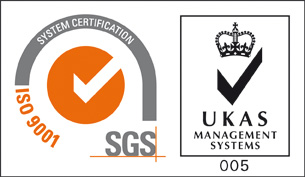The national reports entitled National Integrity Studies are anaylsis reports comprising an in-depth, nuanced evaluation of national anticorruption systems. These reports provide important evaluation instruments, that complete TI's global indexes and surveys (such as the Corruption Perception Index, the Bribe Payers' Index and the Global Corruption Barometer), by exploring practices and circumstances that are specific to each country.
Third Edition
|

|
Through these studies, TI aims to provide a comprehensive picture of National Integrity Systems around the world. The Studies provide both indicators to measure ulterior progress in these countries and the basis for a comparison between countries.
National Integrity Studies NIS are implemented for the sole purpose of evaluating these systems, thus creating an empirical basis to promote better administration in all fields and enhancing the formulation of specific national anticorruption effective reform programs.
TI considers it necessary for all to have a good understanding of the capacity of National Integrity Systems to diagnose the risks of corruption.
NIS comprises key institutions, laws and practices (the "pillars") that contribute to the level of integrity, transparency and responsibility in society. When it functions correctly, the NIS fights corruption as part of an ampler struggle against abuse, law violations and gfraud in all its forms.
The NIS concept was developed and promoted by Transparency International as an integral part of TI's general approach to fighting corruption. Although there is no common/joint project for a system that would effectively prevent corruption, there is a growing international understanding of the most important features of the anticorruption systems with the best results. The NIS studies are based on the evaluation of the institutions and processes that are relevant to the fight against corruption.
These are the pillars of National Integrity Systems:
- The Executive
- The Legislative
- Political Parties
- Electoral Offices
- The supreme accounts control institution
- The system of justice
- The Public Sector
- The Police and national prosecution
- Public acquisition
- People's ombudsman
- Anticorruption agencies
- The Media
- The Civil Society
- The business sector
- County and local administration
- International bodies
The essential features of the National Integrity Studies are:
Qualitative evaluation of the integrity system in a particular country. The presentation of the formal framework is followed by the evaluation of reality-based situations.
Relevant data regarding legislation, governmental and non-governmental reports, news items, studies related to corruption, academic analyses, interviews with experts, focus group discussions.
Balance between theoretical and empirical research.
Include only those corruption cases that have had enough coverage where they can be reliably documented.
Each NIS has two parts: the main report (15,000 words) and the summary of the main report (2,500 words). The main report includes the following elements:
? A brief presentation of the results, themes, conclusions and recommendations of the study.
A brief overview of the country's political, economic and social state of development.
An overview of the causes, levels, costs, types and impact of corruption on the respective state.
A section dedicated to anticorruption activitiesoverviewing those reform or anticorruption activities that have impacted the NIS in the last five to ten years.
A section dedicated to an ample description of he National Integrity System in the respective state, offering a clear picture of the NIS institutions and procedures, the functioning and interactions between the NIS pillars.
An analysis of NIS general practices identifying any tendencies that have been observed during the country study and offering, whenever possible, example of good practices.
A section overviewing priorities, meaning those areas that progress is necessary or where there are clear reform opportunities.
A section including recommendations, highlighting both the areas in which further investigations into the different types of corruption and their countermeasures is necessary, as well as the areas and activities that require short- or medium-term attention.
National Integrity Studies are done by national-level organizations, national TI branches or independent corruption or governance national experts. Each NIS begins after a selection process organized by Transparency International. Each NIS is arbitrated by minimum two independent experts, selected by TI. Final quality control ant methodology management is ensured by TI central organization. A total of fifty five country studies NIS have been released since 2000.
To consult the summary of the Romania NIS, click here.
To consult the full text of the Romania NIS, click here.
 home
home
 Print this page
Print this page
 TI Romania
TI Romania
